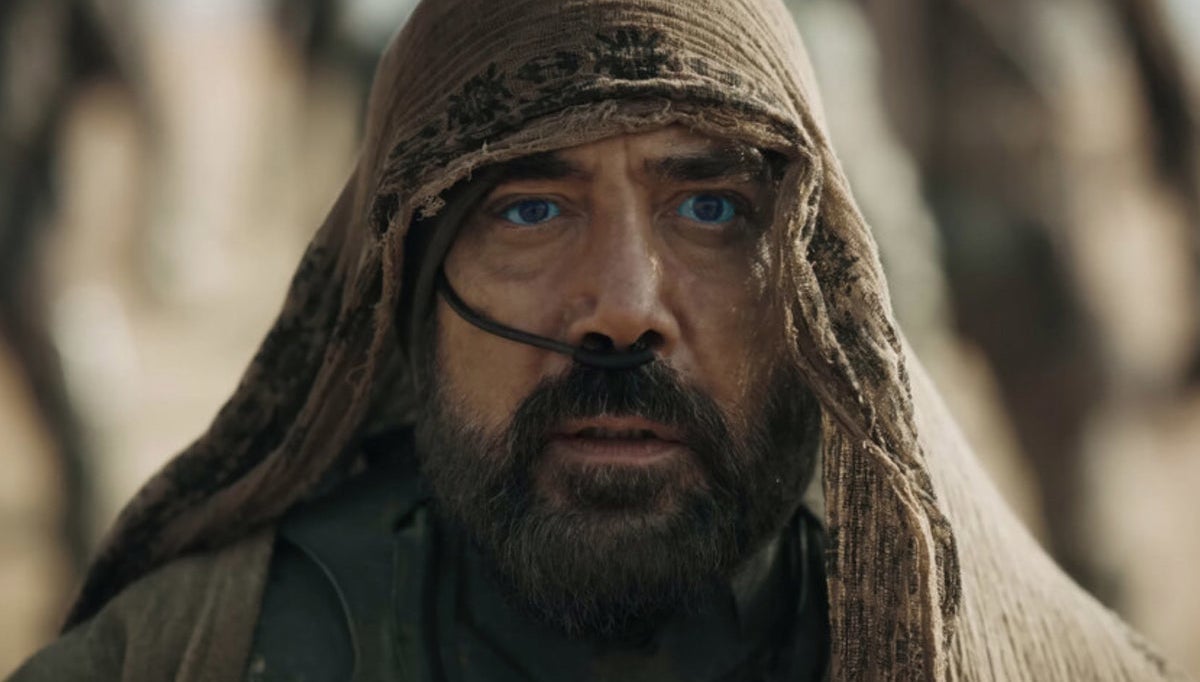The new Netflix film The Imaginary, from director Yoshiyuki Momose and written by Yoshiaki Nishimura, shines a light on imaginary friends.
While not the most original concept in 2024 (being the third movie about imaginary friends this year), what makes The Imaginary stand out is its message about growing up. It is a visually stunning ride as Rudger (Louie Rudge-Buchanan) tries to save his friend Amanda (Evie Kiszel), but the darkness comes from Mr. Bunting (Jeremy Swift) using his imaginary friend to hurt others. Mr. Bunting is an adult who never wanted to give up his childhood friend, and while Amanda created Rudger out of the grief of losing her father, Mr. Bunting represents what happens when you refuse to grow up.
Most imaginary friend stories try to use these “friends” as a way of clinging to childhood, but The Imaginary asks what would happen if that wasn’t a good thing. There are friends who are important to the adult characters throughout the movie, and when they are reminded of them, it is a beautiful moment. But for the most part, it is a story of coping and growing up and understanding what it means to still have that childlike wonder but to not cling to it.
The film was animated by Studio Ponoc and captures the whimsy of films we’ve come to know from that animation world (it has strong connections to Studio Ghibli), and it helps when creating these magical beings. With the film based on the book by A. F. Harrold, many of the imaginary friends were already in the source material. Still, the film brought characters like Kal Penn’s Jinzan (a cat with two different colored eyes) to life.
Heartfelt and overwhelming
Many movies about growing up make us cry, especially as adults. We look at these films and remember what it was like to have those imaginary friends or to cling to our own imaginations in any way. As we grow up, we’re told to stop dreaming and come back to reality. Movies like The Imaginary offer us a middle ground between the two ideas.
Someone like Mr. Bunting is terrifying and not at all what we should strive for, but a character like Lizzie (Hayley Atwell), Amanda’s mother, is a beautiful representation of how you grow up and change but can still return to that childhood wonder when you need to.
A children’s film about grief is hard, but kids go through this, and what I loved about The Imaginary is firmly rooted in its understanding that imagination can continue to fuel us as we age. We shouldn’t cling to things like our imaginary friends or the childhood antics of playing make-believe, but we shouldn’t give that dreamlike quality up entirely, either.
I highly recommend The Imaginary if you’re a fan of anime. Actually, if you just love stories about growing up and loss and coping with that, this is the movie for you. It’s beautiful and captivating, and I cannot stop thinking about how wonderful Nishimura’s adaptation of Harrold’s work is.









Published: Jul 3, 2024 03:53 pm